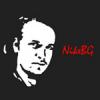"Varlaam and Joasaph"
-
Последна активност
-
- 1736 мнения
- 152896 прегледa
-
- 180 мнения
- 3669 прегледa
-
- 15 мнения
- 201 прегледa
-
- 47 мнения
- 1153 прегледa
-
Генетиката в помощ на историята: сарматският произход на българи и славяни 1 2 3 4 99
От Южняк, in Средновековна история
- 2451 мнения
- 282239 прегледa
-
-
Последно разглеждащи 0 Потребители
- No registered users viewing this page.


Препръчано мнение
Напиши мнение
Може да публикувате сега и да се регистрирате по-късно. Ако вече имате акаунт, влезте от ТУК , за да публикувате.